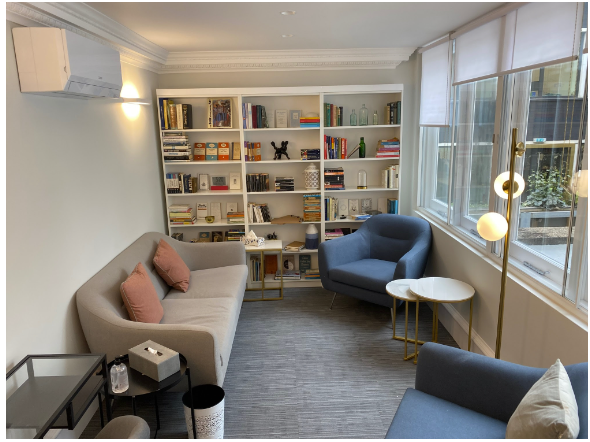Psychotherapies Approaches
I like to work with my client where a tailored psychotherapy approach developed and personalised techniques to empower you learning new tools and change for better. Cognitive behavioural therapy (CBT) is a form of talking therapy that allows you to explore your thoughts patterns, feelings, and behaviour (Act), CBT helps in learning coping skills to deal with different emotional and psychological problems.
CBT is form of therapy that is supported by extensive research studies and is used globally in health services including NHS and recommended by NICE guidelines, National Institute for Health and Clinical Excellence.
I specialise in REBT, Rational Emotive Behavioural Therapy – it is transdiagnostic, humanistic and philosophical approach. Teaches individuals to become their own therapist, my role will be to collaborate with you on learning coping strategy, to learn about your emotions, challenge your unhelpful thoughts and make change in your behaviour to achieve your goal in feeling better.

Psycho Modalities
To heal the unconscious into healthy conscious mind.
To be present in the moment without being judgement to self.
Sessions:
- Single session available for goal achievement
- Ongoing session therapy
- Telephone and Online sessions available
Conditions:
Do you go through this cycle – You perceive a threat… Thoughts bubble up… you feel body sensation… unhelpful thoughts bubble even more… your anxiety increased?
Therapy for Anxiety and GAD: Working on identifying what is your anxiety about, the unhealthy belief(s) you hold about particular situation. Relaxation, Mindfulness, and hypnosis can be integrated to achieve your goal.
- cleaning and hand washing
- counting
- checking on doors locked, or gas or a tap is off
- ordering and arranging
- hoarding
- asking for reassurance
- repeating words silently
- overthinking and fear of obsession like being violent with others
- avoiding places
Therapy for OCD: more behavioural technique, by having consist and persistent work done with therapist and at home to be done by increasing tolerance of discomfort to check less and repeat less of compulsive and obsessive rituals.
- Anorexia Nervosa
- Bulimia Nervosa
- Binge eating
Therapy for Eating disorder: to identify intense emotions like shame and guilt that sometimes not recognised, then work on the unhealthy belief held about the event that triggers the unhealthy eating habit. Treatment will be over stages, like self-monitoring and keeping diary of feeling, eating behaviour and thoughts that encouraged this cycle.
Depression is second to anxiety, the most common experienced emotional disturbances, it is your inability to feel pleasure in activity, lack of concertation, ideas of self-worthlessness There is mild depression, seasonal depression, postnatal depression, and Grief and depression
Are you thinking:
“What’s the point, it’s not worth trying”
“I’ll never find another job like that again”
“I can’t cope with it anymore”
Therapy for Depression:
Identifying other emotions that comes with depression.
Identify and weaken the unhealthy Beliefs held rigidly about life event
Strengthen healthy beliefs
- Behavioural intervention
- Active planning
difficulty to sleep or maintain sleep or sometimes both
Therapy for insomnia:
Understand stages of sleep, what triggers insomnia
Sleep hygiene
Relaxation therapy
Cognitive behavioural hypnotherapy, mindfulness, relaxation
it affects the digestive system, it causes abdominal pain, diarrhoea, and constipation. (Medical diagnosis before booking session)
Therapy IBS: exploring the unhealthy beliefs held and causes IBS symptoms
Reviewing diet and exercise
Relaxation and breathing technique for gut direct suggestions
Integrating Hypnotherapy to strengthen healthy beliefs
Episodes of intense fear accompanied by unpleasant bodily sensations.
Therapy for panic disorder:
Psychoeducation – understanding what is happening.
Identify the unhealthy beliefs
Imaginal techniques
Systematic Desensitisation
- Do you have inability to preform to reach orgasm, painful sexual intercourse or a strong disgust of sexual activity? (A medical cause must rule out before booking consultation.)
Therapy for Psychosexual dysfunction: Working on the unhealthy beliefs about the performance, using relaxation to enhance working on SF 1 and SF2 . Senate Focus One for self and senate focus two for couple taught to eliminate performance anxiety.


